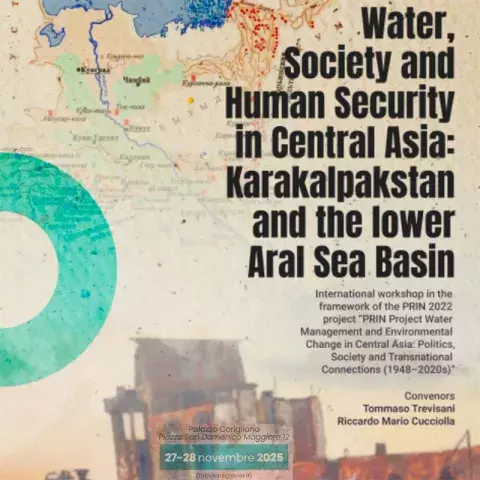
This international workshop explores the intersections of water, society, and human security in Karakalpakstan and the lower Aral Sea basin, a region deeply marked by intensive agriculture, ecological crisis, social and institutional transformations, and cultural tradition.
Bringing together scholars from Uzbekistan, Italy and abroad, the event examines how water management, agricultural practices, and ritual traditions shape livelihoods under environmental stress; how Soviet legacies continue to inform post-Soviet realities and identities; and how institutions, social practices, and cultural heritage mediate adaptation to ongoing change.
Ethnographic, historical, and interdisciplinary perspectives highlight the complex dynamics of human-environment relations, identity formation, and community responses to ecological and political challenges.
The workshop aims to foster dialogue across disciplines and contexts, contributing to a deeper understanding of Karakalpakstan and the Aral Sea basin as both a site of environmental vulnerability and a space of social life and cultural creativity.




